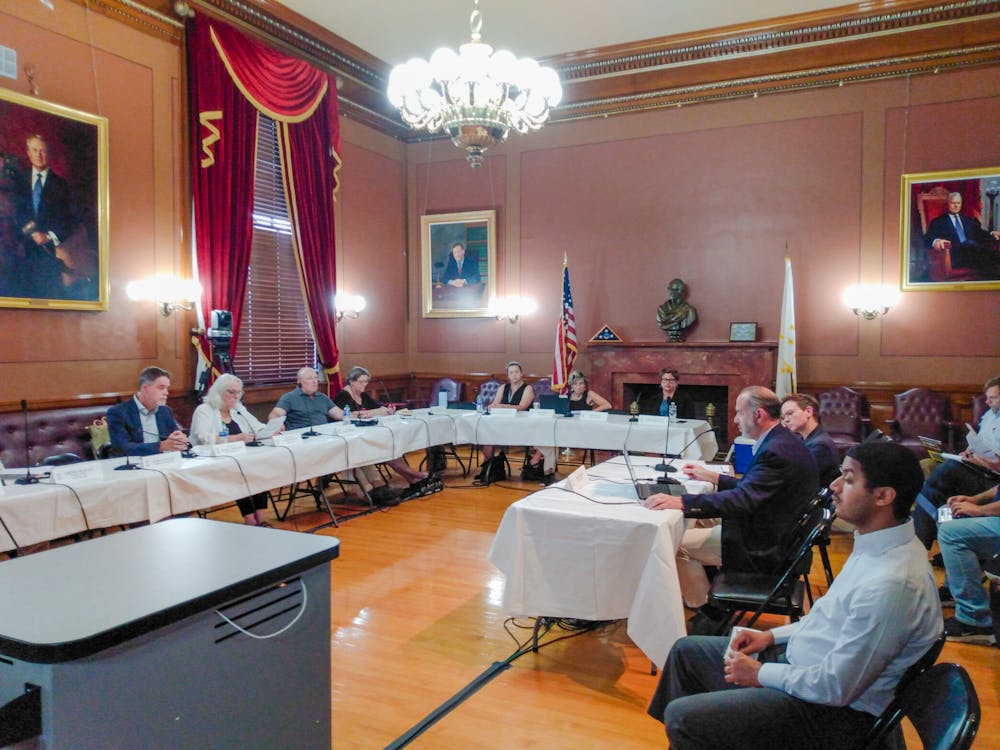Rhode Island’s housing challenges remain stark and will take significant time to improve, Secretary of Housing Stefan Pryor told the Special Legislative Commission to Study Housing Affordability Tuesday afternoon. The Commission is comprised of lawmakers in the state’s General Assembly and representatives of private sector companies and nonprofits focused on housing in the state, including former Congressman David Cicilline ’83.
“Despite remarkably good, even heroic, work by Rhode Island Housing, despite the work of a lot of stakeholders in this room, we have a broken system,” Pryor told the Commission. “We are nowhere near equal to the task of producing housing in our state; we have the worst rate of production in the country.”
“It is not enough simply to set up programs and passively wait for development to happen,” he said.
The dark tone of Pryor’s assessment is borne out of Rhode Island’s housing data, which shows one of the worst housing situations in the nation. Its housing production rate per 1,000 residents was the lowest in the nation in 2021, according to Pryor’s presentation. 150,000 households in the state are cost-burdened — meaning their residents pay more than 30% of their net income on rent and utilities — while the state’s per capita homelessness rate ranks 17th highest in the country.
Despite these challenges, Pryor said, the state is forging ahead with new policy to address the crisis. “We were blessed with a truly successful, progress-filled legislative session,” he told the Commission.
These improvements include the awarding of an additional $101 million in housing investments and various policies aimed to incentivize and enable faster housing development. Among the most significant items is a new state-level low-income housing tax credit, which grants a tax reprieve to developers building low-income housing. New funding opportunities for housing development built around access to public transportation are also in the works.
With regards to homelessness, state collaborations with homelessness service providers have made progress in expanding shelter capacity in cities such as Providence, Pawtucket, Warwick and Woonsocket — either by repurposing existing structures or by granting unhoused Rhode Islanders access to rooms in hotels or motels. These capacity expansions will help provide shelter from the cold when winter arrives, Pryor said. Additionally, the state has launched a $2.5 million pilot initiative to help municipalities provide services like emergency medical care, transportation, meal programs and housing resource counseling to unhoused residents, according to the presentation.
The commission was initially established as the Special Legislative Commission to Study the Low and Moderate Income Housing Act in 2021. In this legislative session, the Commission’s purpose was expanded, and it received a name change.
Although these legislative and administrative policies are expected to improve the housing situation in Rhode Island, Pryor emphasized that the situation would not see "meaningful progress quickly.”
“Unfortunately, our state is coming from behind. This problem is decades in the making,” Pryor said. “Just as the problem has not arrived overnight, it will not be solved overnight.”





